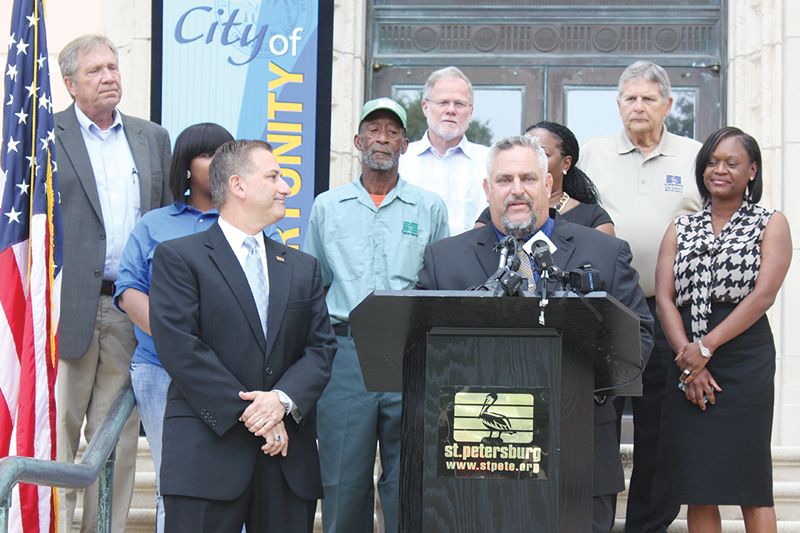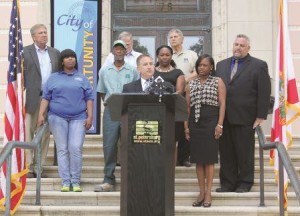St. Pete says goodbye to the box


 Kriseman noted that St. Pete is not the first to ban the box, as nearly 70 cities and counties nationwide, including Tampa, have removed this barrier to employment. Some cities and states have gone as far as extending this practice to contractors and private employers, Kriseman said.
Kriseman noted that St. Pete is not the first to ban the box, as nearly 70 cities and counties nationwide, including Tampa, have removed this barrier to employment. Some cities and states have gone as far as extending this practice to contractors and private employers, Kriseman said.